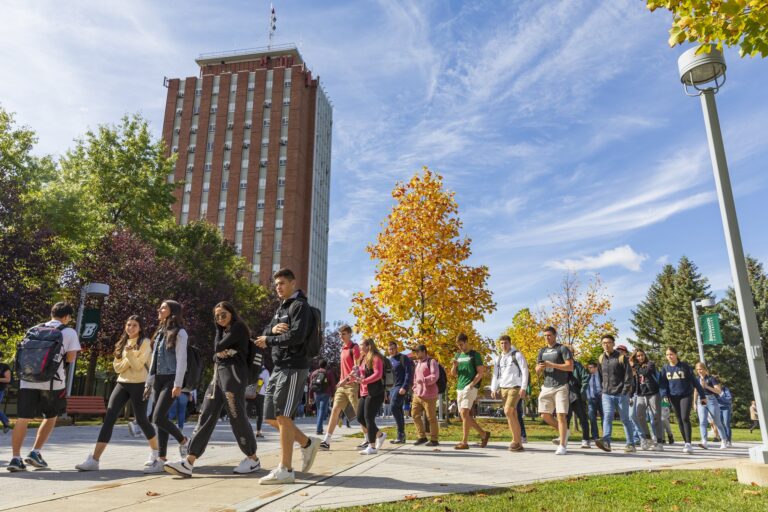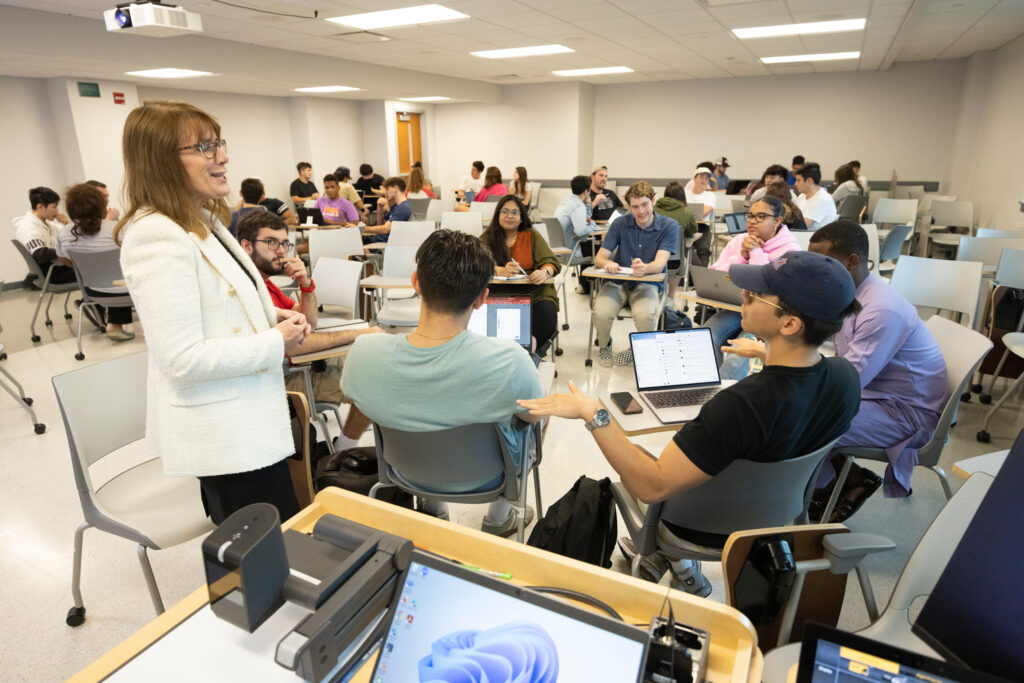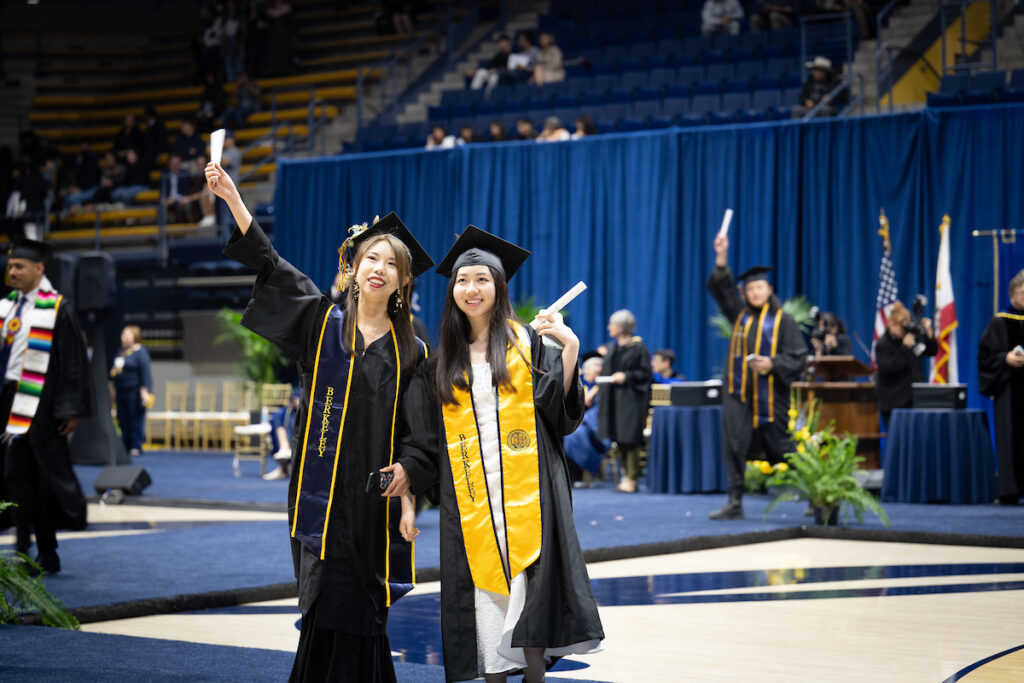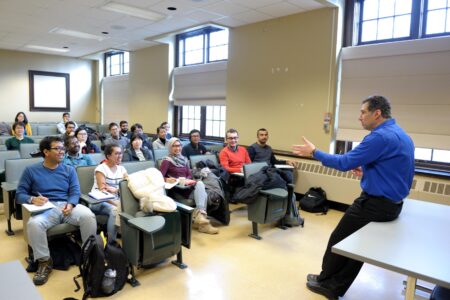
From central banks to tiny, far-flung villages, economists can wield a huge impact on lives – for good and for worse. There’s never one right approach when you’re advising or acting in a field that revolves around the scarcity of resources and their impact on our value as humans. It demands deep and up-to-date deliberation on how we, as fickle, constantly changing individuals and groups, choose to use those resources.
But the best economists can embark on this challenge with competence and confidence. They challenged centuries-old assumptions that capital and labour are the key drivers of growth, exposed mental biases that explained why losing US$100 hurt about twice as much as the gaining of US$100, and made a difference through microcredit, tiny, long-term loans to help poor people start businesses.
As professors, professionals, government advisors, and consultants, these experts lead the way in how countries and corporations evaluate programmes, study human behaviour, and explain social phenomena. To become one of them, retrace their journey to where it all began for them: an advanced economics degree from an esteemed school – like those listed below:

Faculty members at Binghamton University are highly accessible, thanks to classes with only five to 20 students. Source: Binghamton University
Binghamton University
If you’re seeking a more senior or leadership role in the field of economics, there’s no better place to prepare for it than Binghamton University. Located near New York City, the global financial mecca, the state university offers you the opportunity to learn in an environment that attracts students from over 100 countries. With a strong emphasis on cultural and intellectual exchange, it’s little surprise that US News & World Report 2023 ranked Binghamton’s graduate economics programme #79 in the nation.
At Binghamton University – a Top 10 Public Ivy university according to Forbes – you’ll find a diverse and vibrant graduate community in the Economics Department, home to over 60 graduate students from around the globe. Whether you’re pursuing an MA or a PhD, you’ll have access to approximately 10 graduate courses each semester. You’ll also enjoy the flexibility to take finance classes through the School of Management or explore public administration courses via the College of Community and Public Affairs.
The MA programme in economics, particularly the specialisation in financial economics, is designed to prepare you for impactful careers in economic research or to serve as a springboard for further academic pursuits. With 32 credit hours required, you can complete the programme in just three semesters. The curriculum combines core courses in theory and econometrics with electives, allowing you to tailor the programme to your interests.
What makes this MA stand out is its small class sizes, typically five to 20 students, ensuring you have close interaction with faculty members like Associate Professor of Economics Andreas Pape, who is spearheading an interdisciplinary initiative that prepares the local community for the realities of climate change. Regular seminars and workshops allow you to engage with ongoing research presented by visiting speakers, faculty, and senior graduate students.
As a STEM-designated programme, the MA offers international students like you eligibility for a three-year OPT period, giving you extended opportunities to gain practical experience in the US. Whether your goals are in academia, government, or the private sector, Binghamton equips you with the skills and connections to thrive. Learn more about the MA programme at Binghamton University.

The master’s degree is primarily designed exclusively for three types of students. Source: Economics at Illinois Undergraduate/Facebook
University of Illinois Urbana-Champaign
For over 40 years, the Department of Economics at the University of Illinois Urbana-Champaign has produced graduates prepared for prominent positions in both public and private sectors in the US and beyond. Armed with the knowledge, skills, and experiences from their Master of Science in Policy Economics degree, these talented students emerge as confident and competent economists and experts, ready for the next steps in their careers.
After all, they were taught by the best. MSPE instructors are tenure track faculty members who are experts in their fields. They bring insights and guidance, ensuring you’ll be well-ready to not only master the latest statistical techniques, but also the economics that allows you to design meaningful tests and interpret results.
MSPE students have a great deal of flexibility over their coursework as well as the time to complete the degree. You can complete the programme over one year (and a summer), one and a half years (without a summer), or extending over two years to take more elective coursework. You can choose from nine fields of specialisation too. And, this being a department that never holds ambitions back, the programme allows students to take courses in other professional master’s programmes on campus, particularly Finance and Statistics.
There is even a Ph.D. track for students who want to go on to earn a Ph.D. in economics. As it’s STEM-designated, international students can apply for three years of Optional Practical Training (OPT) after they complete the MSPE to work for a private sector employer in the US.
Perhaps, what really sets this programme apart from the rest, however, is the enrichment activities that are built into the learning experience. Through a variety of one-day and overnight field trips, you will visit a number of US cities and learn about various government offices and institutional agencies.
Through these enrichment activities, you can also expect the faculty and staff that make up the programme to come to know you as an individual as well. You’ll never be just another face on campus. Instead, you will have many opportunities to interact and talk one on one with staff and professors outside of the classroom. Whether it’s casual conversations over coffee or tea with the director, lively debates at local eateries and bars, or friendly competition on the soccer field, there’s little hierarchy but seemingly countless chances to truly be a part of the MSPE community.

In order to complete a PhD in Economics, you must go through two major stages. Source: UC Berkeley/Facebook
University of California, Berkeley
Before the University of California, Berkeley Economics became one of its largest teaching and research departments, it had another name: Political Economy. Today, it is the launchpad of six Nobel Prize laureates and seven John Bates Clark medallists, alongside many others who have gone on to do groundbreaking work in economic theory, econometrics, and macroeconomics.
Recently, Professor Gérard Roland won the Czech Economic Society prize for long-term contribution to the development of Czech economic learning and Professor Hilary Hoyne received the 2024 Daniel M. Holland Medal in recognition of her lifetime achievement in the study of the theory and practice of public finance.
From its humble beginnings in 1903, the department has evolved into a globally acclaimed institution with world-class faculty known for their work in economics. Ranked third among all economics departments in the US, the department offers some of the highest-ranked programmes in the world.
One of them is the PhD in Economics, consistently ranked among the top five programmes in the world, where students pursue advanced study and conduct original research. The programme has two stages, which are completed in approximately five to six years.
The first is where you take courses in econometric methods, methods of economic history, and fundamentals of microeconomic and macroeconomic theory before preparing for two specialised examinations and a dissertation prospectus, and taking an oral exam. Finally, you complete a dissertation that is original and represents a significant contribution to the field. PhD graduates have been hired to work at many leading institutions, including Harvard University, Massachusetts Institute of Technology (MIT), Yale University, the US Federal Reserve and the World Bank.
*Some of the institutions featured in this article are commercial partners of Study International










